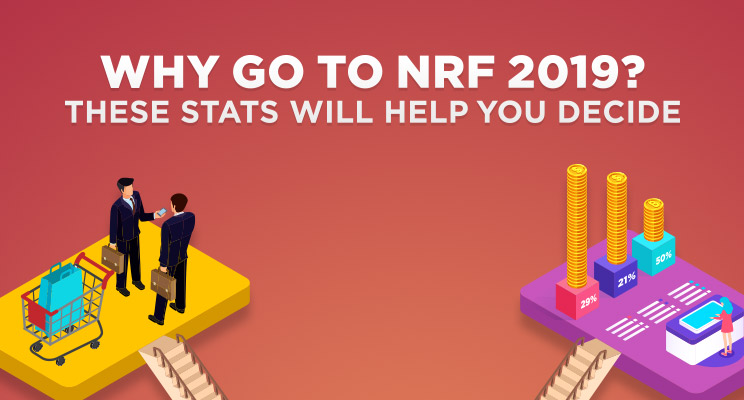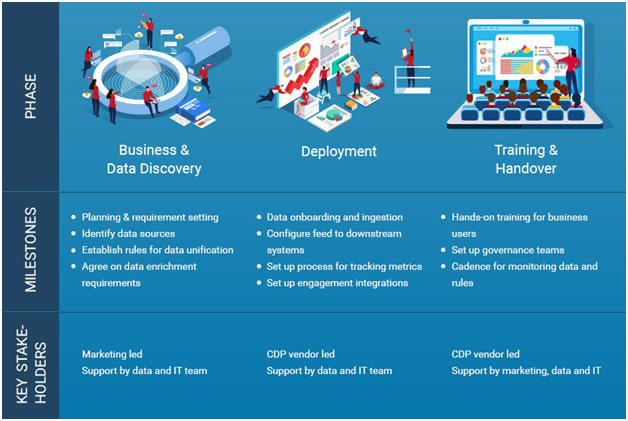For over a decade, retailers have been trying to democratize analytics across their business units, departments and people, but it always seemed like a distant dream. With the use of artificial intelligence, it has become possible to smartly blend analytics into the very fabric of your retail business. Retailers can leverage AI-augmented retail data analytics that is context-aware, has all the insights needed for prescribing the right actions, and can even implement your decisions.
As data explodes, the human ability to manually explore data, to find out issues or opportunities, and to device tactics to address them, is becoming a thing of the past. Today’s systems have the capability to sense what is happening within your store locations as well as departments of the entire retail business, develop focused insights about any operation, predict the upcoming challenges or opportunities, prescribe the best way to move forward, and then execute the decision. Such an analytics model, that presents an augmented AI experience to retail staff at any level as well as to the customers, is what is needed in the near future.
It’s time to make a transition to an algorithmic business
Now that most retailers have transformed themselves digitally, the next big step is to transition into an algorithmic business; one that uses AI to make the analytics system more aware and intelligent, and therefore auto-processes many of the tasks humans do. Machine learning based systems can learn what a user typically analyzes, what patterns in data they typically solve, and what business processes or goals they usually drive.
Gartner’s Hype Cycle for Retail Technologies 2018 predicts that, “In the next couple of years significant benefits will emerge as retailers absorb the impact of AI as part of an algorithmic retailing strategy. Algorithmic retailing takes a broader view of use of mathematical algorithms, deep learning, smart data discovery and other advanced analytic capabilities to make major contributions to the effectiveness of the retailers’ decision-making processes.”
With augmented AI solution, users can specify the expected outcomes. For instance, if they would like to improve sales of a specific product line while protecting margins by at least X%. Earlier, they would typically use the enterprise BI and Analytics tools, set data filters as they seem fit, use the dashboards to drill down additional details in order to get the specific insights to support their decision – and doing all this required a certain level of expertise.
But today, the AI-based system can take in your final goal as an input, then automatically processes data, recognize opportunities among the various tactics businesses use to improve sales by modeling the outcome against variables like product, price, availability, and customer preferences to recommend the best action to execute. What’s more; once you decide upon a suitable action, the solution would implement that decision for you. With many business contexts already modeled into the analytics system, it can function as a perpetual prescriptive engine for every process in retail and CPG – and for every individual in the retail organization.
How can it help retailers?
In today’s hyper-complex retail environment, retailers come across a wide range of crossroads every day, where they need to choose which path is perfect for their business. The data and information are all there, but what is still lacking is an ability to understand business context, identify anomalies that need attention, correlate all that data, predict outcomes, and prescribe the best decision or action.
Today’s AI-augmented retail data analytics solutions are autonomous, omnichannel entities that can help retailers execute repetitive, data intensive tasks at speed and scale. It can help retailers with resolving business challenges and taking decisions pertaining to all areas of retail, including: new product forecasting, inventory management, in-store engagement, real-time personalization, assortment optimization, promotions, campaign management, store operations, price markdowns, loyalty management, and a lot more.
This AI-based retail data analytics solution knows what your customers want, knows your manpower needs and inventory levels, can sense winning product combinations, categories, and promotions, and keeps getting smarter over time as more and more decisions are implemented.
How does it work?
There are three vital pillars needed for retailers to build an AI augmented environment that would democratize analytics across their business. These include: machine-driven data management and algorithmic insight generation, AI-augmented analytics process automation, and simplified user-interaction through conversational analytics.
The system must have an AI powered platform that ingests and unifies data and prepares it for analysis based on the context. It should offer a friendly user interface that humanizes interaction through natural language – so the users, just need to talk to it and the intuitive analytical system would start churning recommendations immediately. Once a question gets asked, it understands the context, processes the data and uses advanced algorithms to machine-analyze and prescribe the best action for a business outcome by considering decision contexts and simulating potential impact.
Welcome to the future – A Store That Knows
The stage is all set for AI to make a transformation in the way retailers operate. Algorithmic retailing will enable retailers to optimize sales for specific segments and categories while providing unrivaled operational efficiencies by automating repetitive and complex data-driven tasks. AI could be implemented for optimizing the entire retail business so that it operates at peak efficiency levels.
Gartner’s Hype Cycle for Retail Technologies 2018 estimates that, “up to 50% of retailers have adopted some form of algorithmic optimization application, and expect algorithmic retailing will grow from its current penetration relatively quickly.”
A Store That Knows, is a concept devised by Manthan Systems, and will soon become a widespread reality in retail. Manthan is at the leading edge of this evolution and is today enabling the underlying technology capabilities for several retailers. Manthan is pioneering innovations in analytics by using the power of AI to enhance decision-making across various dimensions in the technology stack, including data management, insight generation and analytics consumption.















